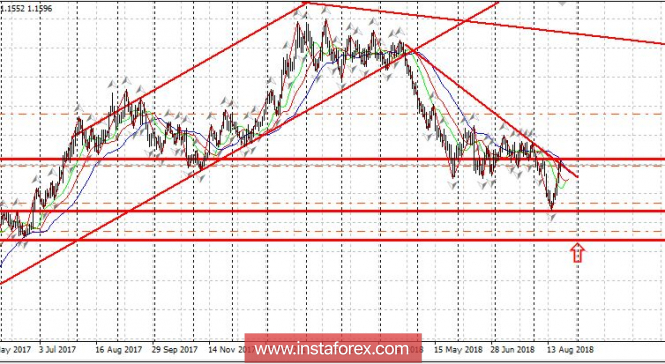Inflation will support the euro.
The latest figures show growth of salaries in the euro area, the total salaries increased in the 2nd quarter at a rate of + 2.2% per annum, compared to a growth of + 1.7% in the 1st quarter. The growth of wages is a very reliable precursor to accelerating inflation. Low inflation is the ECB's longstanding concern, as inflation is below the 2% target which is the main reason that the ECB continues to adhere to non-standard policies. The ECB rate is 0%, while the rate on deposits for banks is minus 0.4%.
The ECB under the plan should completely complete the program of pumping liquidity markets in December this year.
Markets are now waiting for the ECB's next meeting on September 13.
The main topic for the EUR/USD course is the differential of the monetary policy of the Fed and the ECB. The Fed raises rates according to the plan of two more increases by + 0.25% before the end of this year. The ECB said it did not plan to raise the rate until at least the summer of 2019.
It appears that the euro will decline. So, it seems to happen after a two-month consolidation in the range 1.1500 - 1.1800, as the euro went down and passed to 1.1300.
But it was enough for US President Trump to publicly criticize the Fed's rate hike, and the euro literally rose to 1.1600 in three days.
Much can be decided on Friday in Jackson Hole at the Federal summit, which will meet the heads of the world's largest securities. Fed Chairman Jerome Powell will speak on Friday.

* The presented market analysis is informative and does not constitute a guide to the transaction.
The material has been provided by InstaForex Company - www.instaforex.com